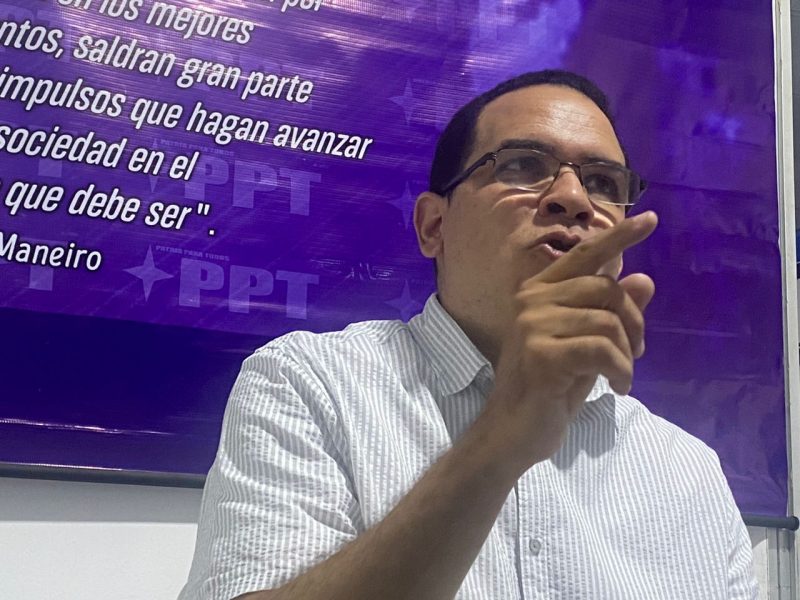By Douglas Bolivar, Caracas / Venezuela
Juan Carlos Valdez served as Venezuela’s ambassador to Barbados between 2007 and 2010. He is a lawyer by profession and an economist by practice for more than 30 years. He is a member of the national leadership of the Patria Para Todos (PPT) party and organization secretary for the state of Miranda.
Together with deputy Tony Boza (PSUV) and the economist Pascualina Curcio, he forms a critical trident in regards of the economic policies of President Nicolás Maduro, mainly on the issues of wages and inflation.
The positions of this economic current within the Bolivarian Revolution sometimes become high-sounding.
However, Valdez distances himself from these differences and celebrates President Maduro’s recent visit to Brasilia, where he proposed Venezuela’s entry into the BRICS, a community of countries with emerging economies to which China, India, Russia, South Africa and Brazil itself belong.
“For four years we have said that it is very important that Venezuela is in the BRICS,” says Valdez, referring that the association is producing a displacement of the hegemonic states led by the United States.

“Germany and France have been flirting with the BRICS for some time, they know that it is the pole of force,” adds Valdez to highlight the decisiveness of this bloc.
“Those of us who heard President Maduro talk about this possibility were pleasantly surprised. It’s wonderful for us.”
“What would happen if the world’s main oil reserves were transferred to the BRICS?” Valdez looms, alluding to Venezuela’s oil capacity.
“Brazil already belongs to the BRICS, which is the most important coalition of states from an economic point of view. The greatest amount of population is concentrated in few countries: there is a significant demand”, pointed out the economist.
“China has already surpassed the United States,” he continued. “The United States resells what China produces.”
Convergence of Lula
Another point that Valdez observes in the meeting of presidents in Brasilia is the relaunch of Lula Da Silva as a continental reference.
“Without a doubt, Lula becomes one of the pieces for the unity of Latin America and for the impulse of our sub-continent in this rearrangement where China and Russia are displacing the United States.”
“Lula’s leadership produces convergence,” he sums up.
Although he concedes that the current Lula does not have the internal strength he had in his first government, “he does enjoy inescapable respect on the continent.”
With Lula, asserts Valdez, the Union of South American Nations (UNASUR) is refloating.
“This is another important point of the Brasilia meeting, because it produces a real weakening of the OAS, which will be replaced by UNASUR.”
“Lula is somehow telling the OAS that it has substantially lost strength and that Brazil is going to play an important role in this sub-continent.”
Valdez subscribed to the aspect of the meeting that was most publicized by the press, referring to Lula’s complaint that Venezuela is the victim of a constructed narrative.
“You are absolutely right. The United States provokes factual elements, creates a crisis”.
Economic differences
Regarding his joint positions with Tony Boza and Pascualina Curcio, Valdez insists on economic mismanagement by the Venezuelan government and is sustained on the issue of salaries.
“There is a widespread protest over salaries and it is not true that they are only opponents. That is very dangerous. By saying that, a politician is decreeing his own death,” he alleges.
He concedes that the economic plans of a government have no place for notions of left and right. “There are many tools that you can use, but there are ideological elements that affect your actions.”
“If you are convinced that inflation is a monetary issue, then you seek to reduce liquidity, freeze wages, lower consumption… What’s the point of lowering prices because people don’t have enough to buy?”
“Inflation is at all times and in every situation a monetary matter. Inflation in Venezuela is not determined by supply and demand.
In fact, he reported that in 2022 there was a dollarized inflation of 59%.
















Leave a Reply